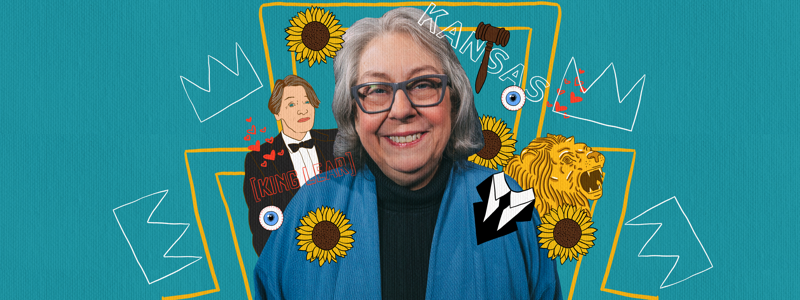
(Photo by Caitlin McNaney/Illustrations by Ryan Casey for Broadway.com)
Tony Winner Jayne Houdyshell on Tackling King Lear with Glenda Jackson, Wicked Perks & More on Show People with Paul Wontorek
Jayne Houdyshell is enjoying a full circle moment: the young girl who was so inspired by Glenda Jackson's Marat/Sade performance on PBS is now an esteemed performer sharing the stage with Jackson eight times a week in Sam Gold's epic staging of Shakespeare's King Lear. Though Houdyshell did not make her Great White Way debut until the age of 52, she has performed all across the country and is a New York stage stalwart. Since then, Houdyshell has earned acclaim in Broadway productions like Well, Follies, A Doll's House, Part 2 and more. In 2016, she earned a Tony Award for The Humans, and as previously reported, she'll reprise her role on the big screen in a film adaptation of the Stephen Karam play. Houdyshell stopped by Show People with Paul Wontorek to discuss life backstage at Lear, which theater power player she grew up with and more.
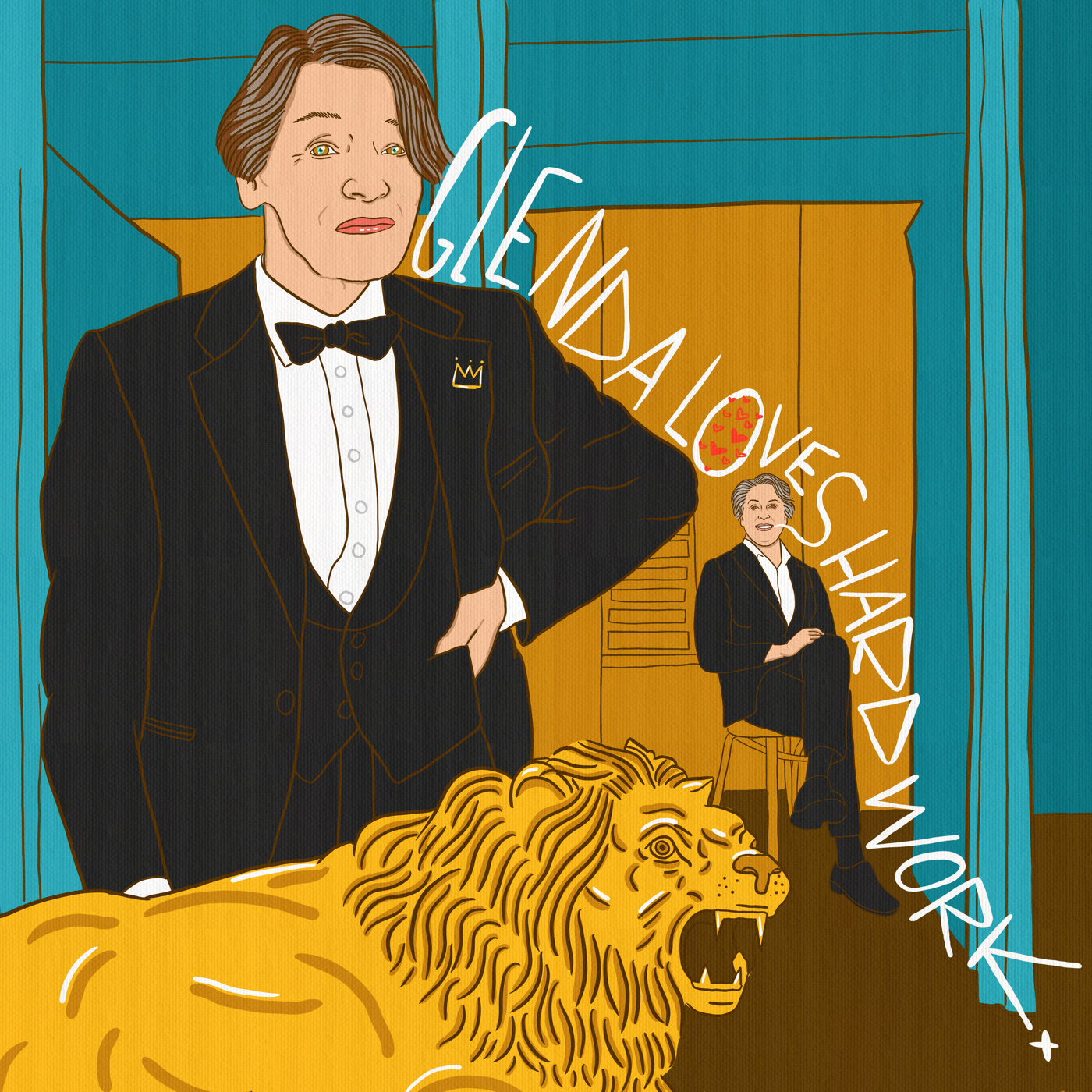
1. SHE GREW UP AS A HUGE GLENDA JACKSON FAN
“I grew up in Topeka, Kansas and knew that I wanted to be an actor at a surprisingly young age for having grown up in Topeka, Kansas. By the time I was in high school, I was firmly entrenched. I remember seeing Marat/Sade on PBS when I was 15. I didn’t know that theater could be that. Glenda Jackson was so unique in that production. That was my first exposure to her. She was very inspiring to me as a really young aspiring actress who didn’t know much about anything at that point. Glenda loves hard work. The more challenging the thing, the more thrilled she is to be doing it. I briefly met Glenda when she was doing Three Tall Women. I was starstruck—inarticulate. I was that 15-year-old kid when I saw her.”
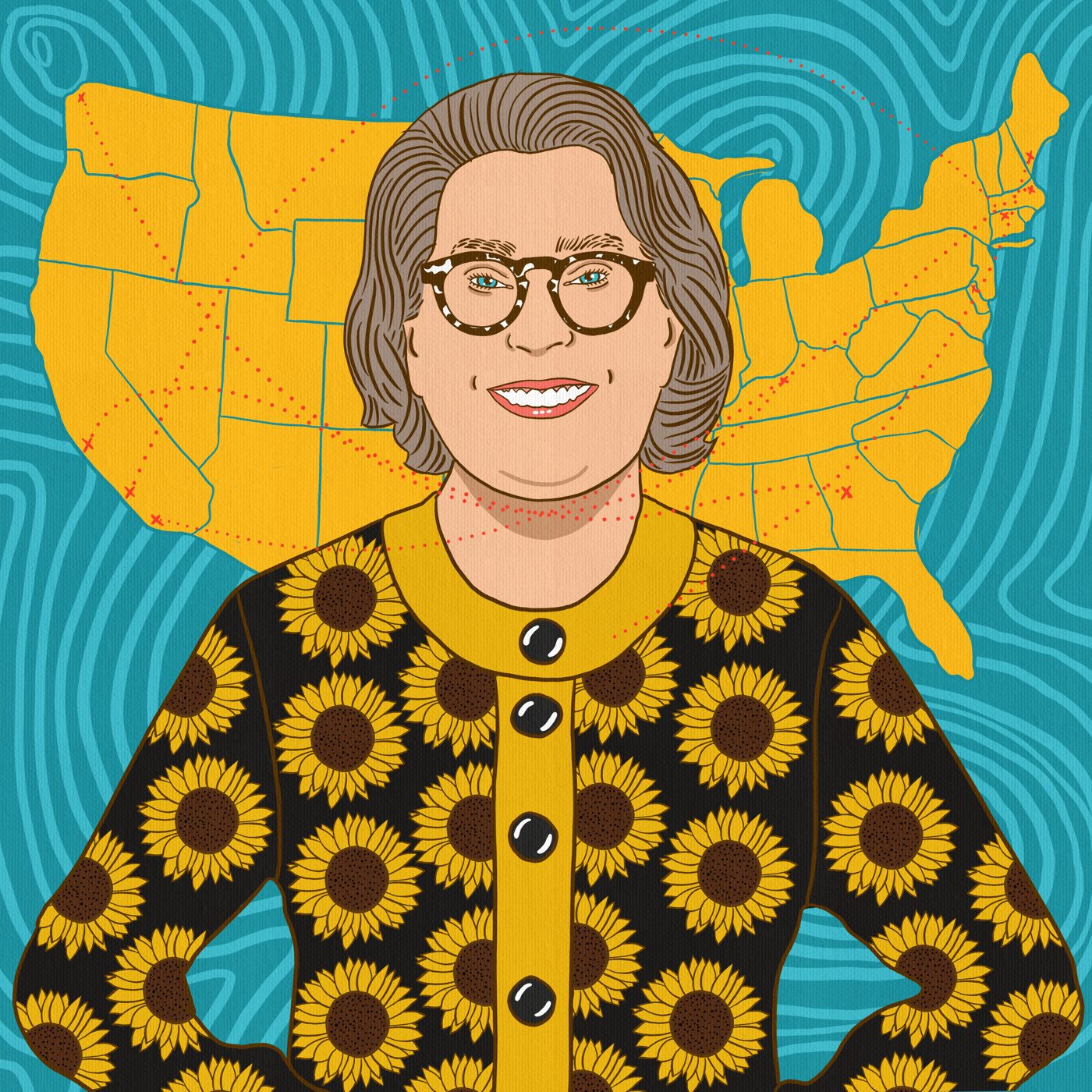
2. HER REGIONAL THEATER CAREER BROUGHT HER ALL ACROSS THE COUNTRY
“It was never a plan. It’s not like I sat down and had things mapped out for myself at all. One job just kind of led to the next. I started auditioning for the larger regional theaters and working. Those jobs just snowballed. I loved that life because I was usually hired to do multiple shows—a wide range of roles, good parts with in interesting places with interesting actors. I was able to support myself as an actor, and that was really my measure of success. I was able to play Fanny in Funny Girl. I played Lola in Damn Yankees and Adelaide in Guys and Dolls. I played Desiree in A Little Night Music. I played Dolly in Hello, Dolly!.”
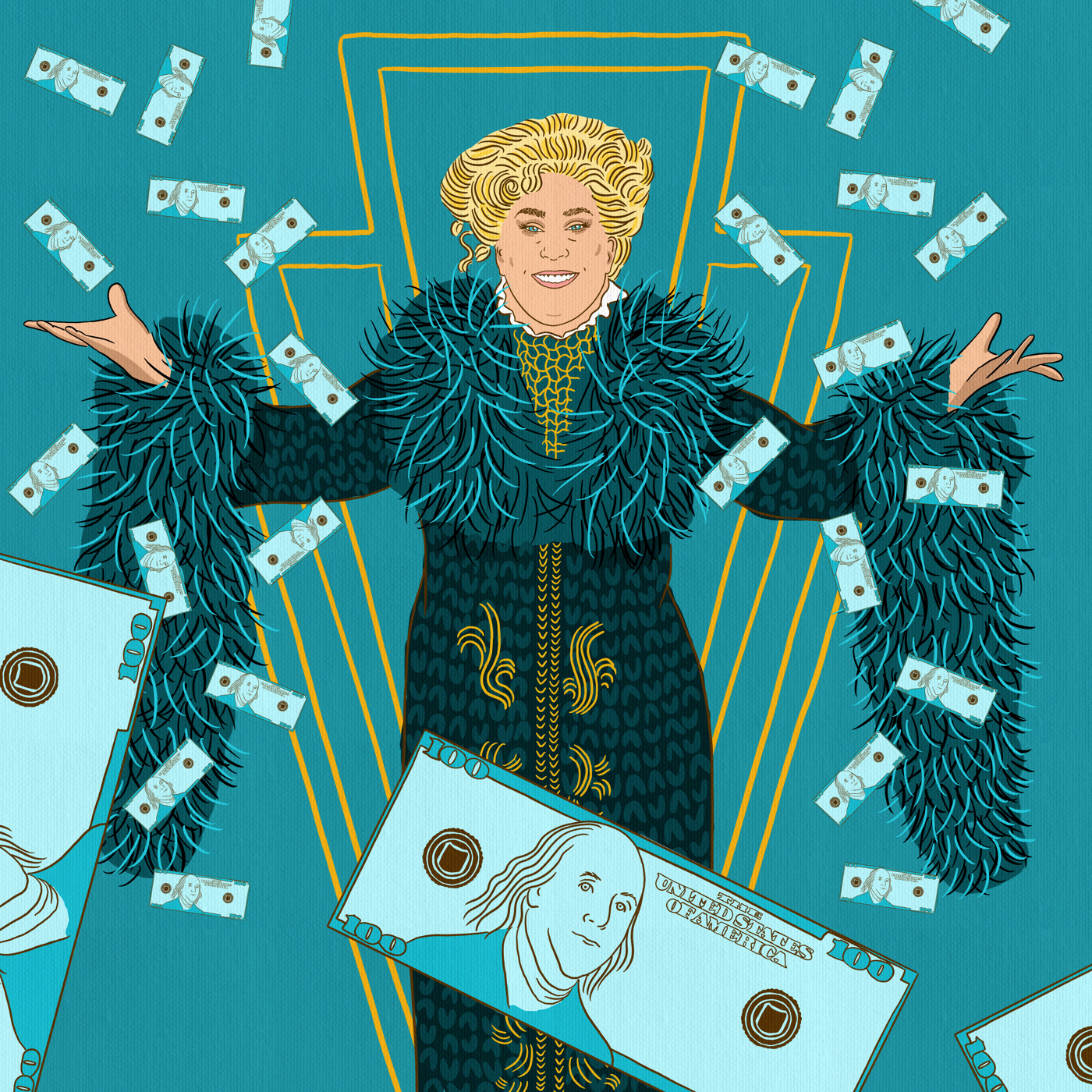
3. SHE MADE MAD MONEY PLAYING MADAME MORRIBLE IN WICKED
“It was a great gig. It was the first time I actually ever saved money from a job. I wasn’t just paying the bills. I had surplus. Because of that, I was able to leave my one-room studio in Inwood that I’d been in for 27 years and move downtown to a larger apartment. I lived very close to the bone for most of my adult life.”
Other must-read highlights:
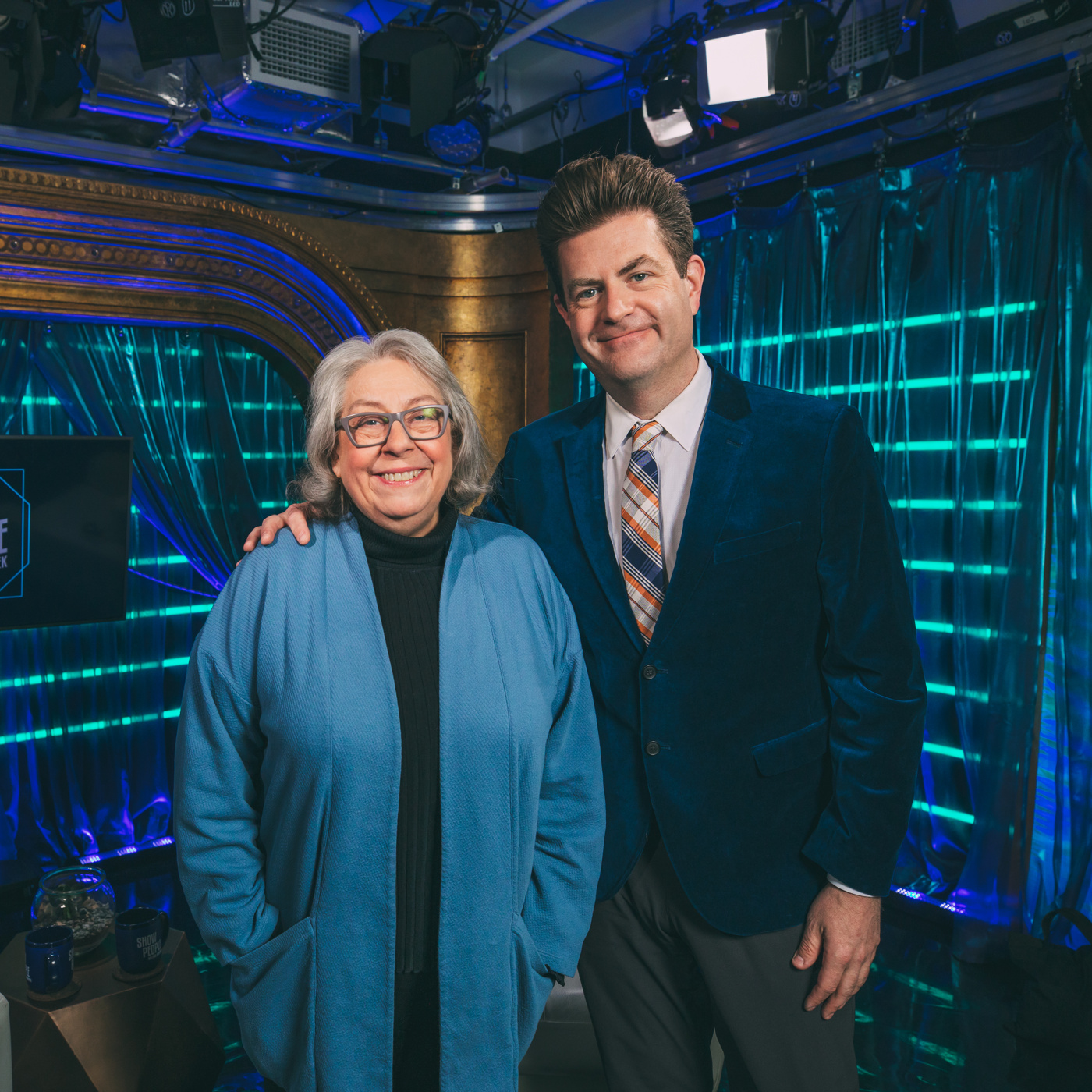
(Photo by Caitlin McNaney)
ON BACKSTAGE LIFE AT KING LEAR
“The atmosphere in the wing space is quite congenial, sometimes rather light-hearted and fun. I have a lot of entrances and exits pretty much interspersed throughout the play. I live in terror of missing an entrance, so I sit backstage for the whole show every night and listen to the play. I’m listening to the audience, and I’m listening to my co-workers every night. I love doing that. I often do that in the plays that I’m in—find a chair and a corner, and sit there and listen. I find it educational and also very interesting to see the growth of a production over time. It fascinates me.”
ON FINDING HER PASSION FOR ACTING AT AN EARLY AGE
“There was no neighborhood with other children to play with, so I developed my imagination very early on. I loved pretending to be other people. I got very enamored with The Miracle Worker film. It was stunning to see as a child—to know that there was a child actor that could do that. I was terribly jealous of Patty Duke. I would turn out the lights in my room and be blind for hours at a time. I was very serious about the work.”
ON HER GUITAR GIGS
“When I was 12, my mother gave me a guitar. Bless her heart—her fantasy is that I would one day play Maria von Trapp. But nevertheless I did learn to play the guitar. This was in the mid-sixties. The kids my age weren’t doing this yet, and it felt like a cool thing to do. I learned to play folk music and sang. Someone in the local community theater heard me and asked me to perform on Saturday nights. So on Saturday nights at 11 p.m.—my mother would drive me into town—I’d go in and put on costume and makeup, go out with my guitar, sit on a stool and sing ‘Yesterday.’ I’d then take my costume off, get back in the car and my mother would drive me home.”
ON KING LEAR DIRECTOR SAM GOLD
“He’s totally lacking in pretense. He’s very down to earth with people. But he’s just madly creative. He is always looking for a way in to plays—particularly with revivals—that break rules and shake up people's previous notions of what a particular piece is. It requires them to look at it through a different lens.”
ON GROWING UP WITH TONY WINNER JOE MANTELLO
“Joey Mantello. He was 18. I did Equus with him, and he was stellar in that. He was a very sweet guy, and a brilliant young actor. He had not been trained much at that point. He had virtually no technique. But when we did Equus, he was raw. He was emotionally available. He’s done very nicely.”
Watch the full episode of Show People with Paul Wontorek below!
Did you know Show People is available as a podcast? Check it out on iTunes and Spotify.